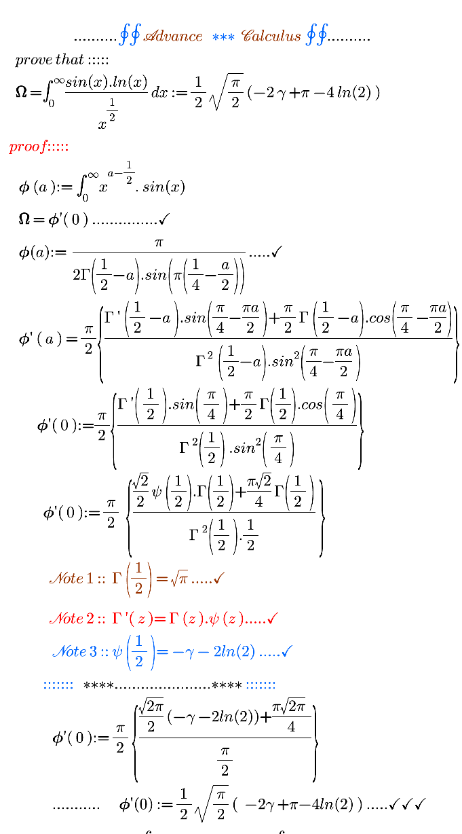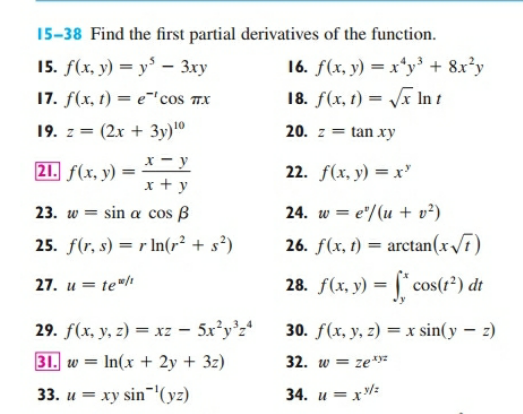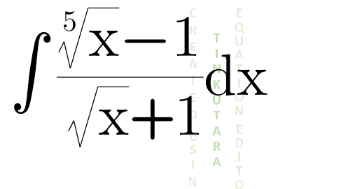
Question and Answers Forum
AllQuestion and Answers: Page 738














Pg 733 Pg 734 Pg 735 Pg 736 Pg 737 Pg 738 Pg 739 Pg 740 Pg 741 Pg 742
|
Question and Answers Forum |
AllQuestion and Answers: Page 738 |
| (√((7x+2)/(x+2)))−((12)/(7(7x+2)))=((53)/(28)) find x |

|
| calculate ∫_0 ^(∞ ) (dx/(x^4 −x^2 +2)) |
| calculate ∫_(−∞) ^(+∞) ((cos^2 (x))/((x^2 −x+2)^2 ))dx |
| calculate ∫_0 ^∞ ((arctan(x^2 −1))/(x^2 +4))dx |
| calculate ∫_(−∞) ^∞ ((xsin(2x))/((x^2 +x+1)^2 ))dx |
| Θ=∫_0 ^( ∞) ((sin(x).log^2 (x))/x)dx=(π/(24))(12 γ^( 2) +π^2 )....✓ |
| X and Y stand in a line, at random with 10 other peoples. What is the probability that there will be exactly 4 persons between X and Y? |

|
| ((36)/( (√(x−2)))) +(4/( (√(y−1)))) +4(√(x−2)) +(√(y−1)) = 28 find x & y |

|

|

|
| ... mathematics.. prove that: 𝛗=∫_0 ^( ∞) ((arctan(x).ln(1+x^2 ))/(1+x^2 ))dx =((π^2 ln(2))/4)+(7/8) ζ(3) |

|

|

|

|

|
| ∫_( 1) ^( 4) (√(((√z)−1)/( (√z)))) dz =? |
| ∫cos(ln(sinx))dx |

|

|

|
| Calculus: lim_(x→∞) [ (x^2 /2^x ) + (2^x /(x!)) + ((x!)/x^x ) ] = ? |

|
Pg 733 Pg 734 Pg 735 Pg 736 Pg 737 Pg 738 Pg 739 Pg 740 Pg 741 Pg 742 |